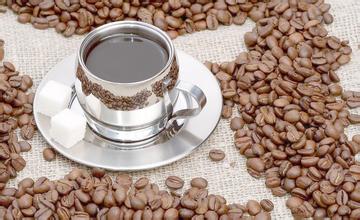Introduction to the flavor and taste characteristics of Malaba coffee in southern Rwanda
Rwandans have been growing coffee since colonial times, but until 1999, the product was classified as below grade C and on the global market.
Nobody cares. The reason for the poor quality is that farmers do not have a fixed procedure for cleaning coffee beans, and they do not process coffee fruits according to specifications in time. Buyers pay $0.33 a kilo for coffee beans, farmers subsist on meager profits from low prices, but remain poor.
In 1999, 220 coffee growers formed a union in the Malaba area (formerly part of Butare province) to address the problem. Many of its members are farmers separated from their loved ones by the 1994 massacre, and some have husbands jailed or brought before traditional gacaca courts to face trial on charges of involvement in the massacre. They named the guild Abahuzamugambi, which in Rwandan means "people working together to achieve goals." Farmers hope that by establishing this association, they can directly cooperate with Kigali exporters, instead of being stripped layer by layer through intermediary transportation companies, and thus increase their profits. Farmers divide their profits and spend them on tools, fertilizer and seeds to increase production.
In 2000, the mayor of Maraba requested development assistance from the National University of Rwanda (UNR), located near Butare; the following year, UNR helped to establish the Partnership for Strengthening Agriculture in Rwanda (PEARL). PEARL is supported by several organizations: USAID, Michigan State University, Texas A & M University, and many Rwandan organizations, including the National University of Rwanda, the National Agricultural Laboratory (ISAR), and the Kigali Institute of Technology (KIST). In February 2001, PEARL began working with Abba Uzam Gambi to improve coffee quality to meet the standards of the U.S. specialty coffee market and sell coffee to the United States.
The first problem that Malaba coffee farmers solved was to set up a washing station. Coffee cherries must be transported to a washing station within twelve hours of picking to remove the sugar coating under the outer skin of the coffee beans, otherwise the flavor of the coffee will be greatly damaged. In July 2001, with funding from UNR, the Office des Cultures Industrielles du Rwanda (OCIR-Café), ACDI/VOCA and ISAR, they built the first cleaning station near the main road in Cyarumbo district. However, the washing station was not activated until late in the harvest season, so only 200 kg (441 lb) of the harvest was washed that year. However, the result was unexpectedly good. In 2002, the washing station was upgraded to provide more coffee processing. ACDI/VOCA was responsible for funding the construction of pipelines to bring in Mount Huye mineral water and help improve the efficiency of the cleaning station. Pipeline commissioned in March 2002

Important Notice :
前街咖啡 FrontStreet Coffee has moved to new addredd:
FrontStreet Coffee Address: 315,Donghua East Road,GuangZhou
Tel:020 38364473
- Prev

Sun-treated Yejia Xuefei Coffee beans introduce Fine Coffee
There is a strict standard for collecting red fruits (as a result of coffee trees). Before exposure to coffee fruits, unripe green fruits or defective fruits are removed manually, and damaged or moldy fruits are removed during the sun drying process. after two weeks, the flesh sugar and essence seeped into the coffee beans, the water content was reduced to 12%, and then scraped off the hardened pulp, pectin layer and pods with a planer to remove the coffee.
- Next

Introduction of Tanzania Kilimanjaro Coffee, which is rich in volcanic soil
Tanzania's main coffee producing area, located at the foot of Mount Kilimanjaro, is rich in volcanic soil. Some coffee trees planted here are more than 100 years old. Coffee was first introduced by Christians from Kenya to grow coffee. Coffee trees must be carefully taken care of, weeded and fertilized. And old branches must be cut off so that new branches can grow to maintain the quality of coffee beans.
Related
- Does Rose Summer choose Blue, Green or Red? Detailed explanation of Rose Summer Coffee plots and Classification in Panamanian Jade Manor
- What is the difference between the origin, producing area, processing plant, cooperative and manor of coffee beans?
- How fine does the espresso powder fit? how to grind the espresso?
- Sca coffee roasting degree color card coffee roasting degree 8 roasting color values what do you mean?
- The practice of lattes: how to make lattes at home
- Introduction to Indonesian Fine Coffee beans-- Java Coffee producing area of Indonesian Arabica Coffee
- How much will the flavor of light and medium roasted rose summer be expressed? What baking level is rose summer suitable for?
- Introduction to the characteristics of washing, sun-drying or wet-planing coffee commonly used in Mantenin, Indonesia
- Price characteristics of Arabica Coffee Bean Starbucks introduction to Manning Coffee Bean Taste producing area Variety Manor
- What is the authentic Yega flavor? What are the flavor characteristics of the really excellent Yejasuffi coffee beans?

